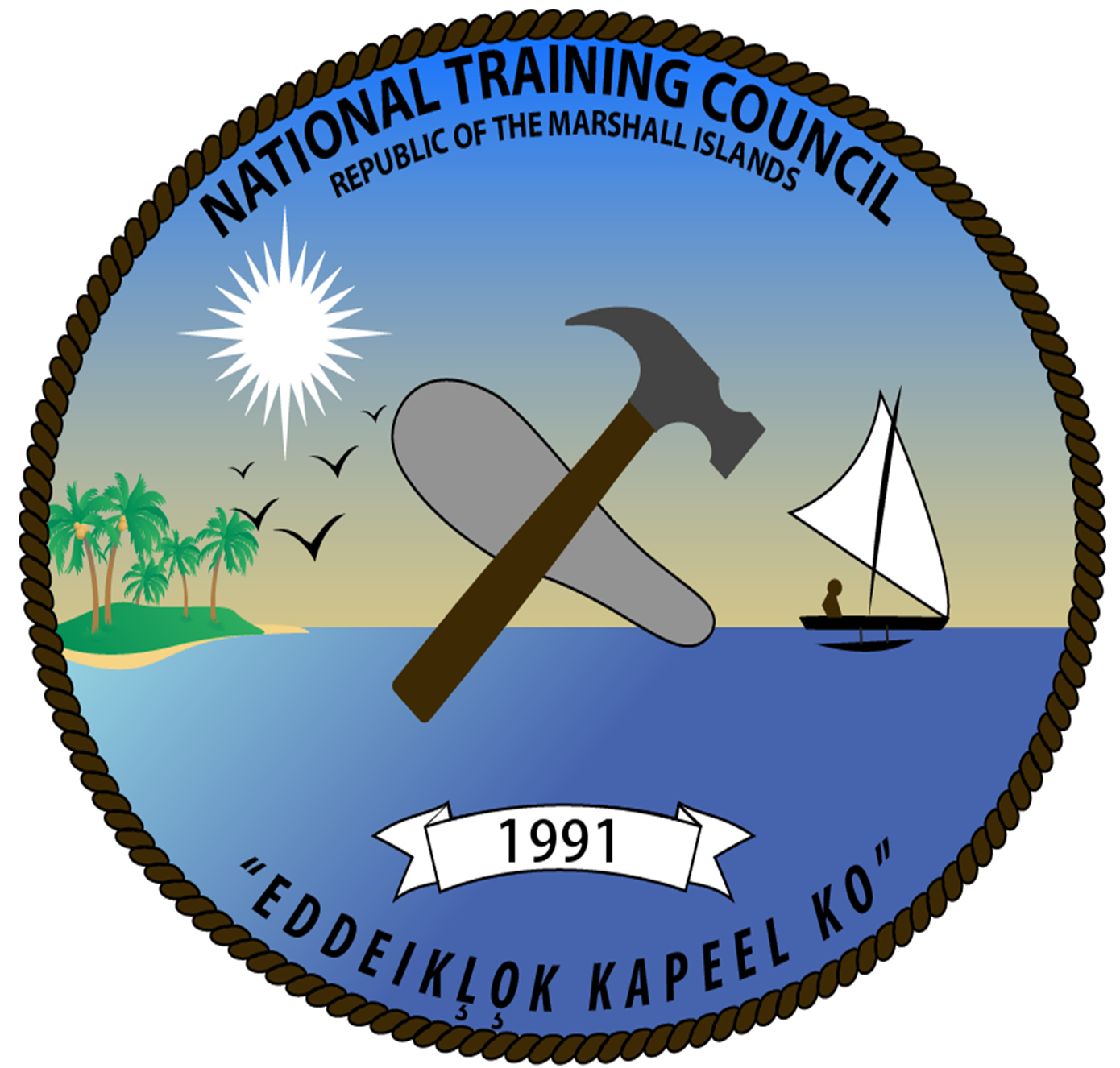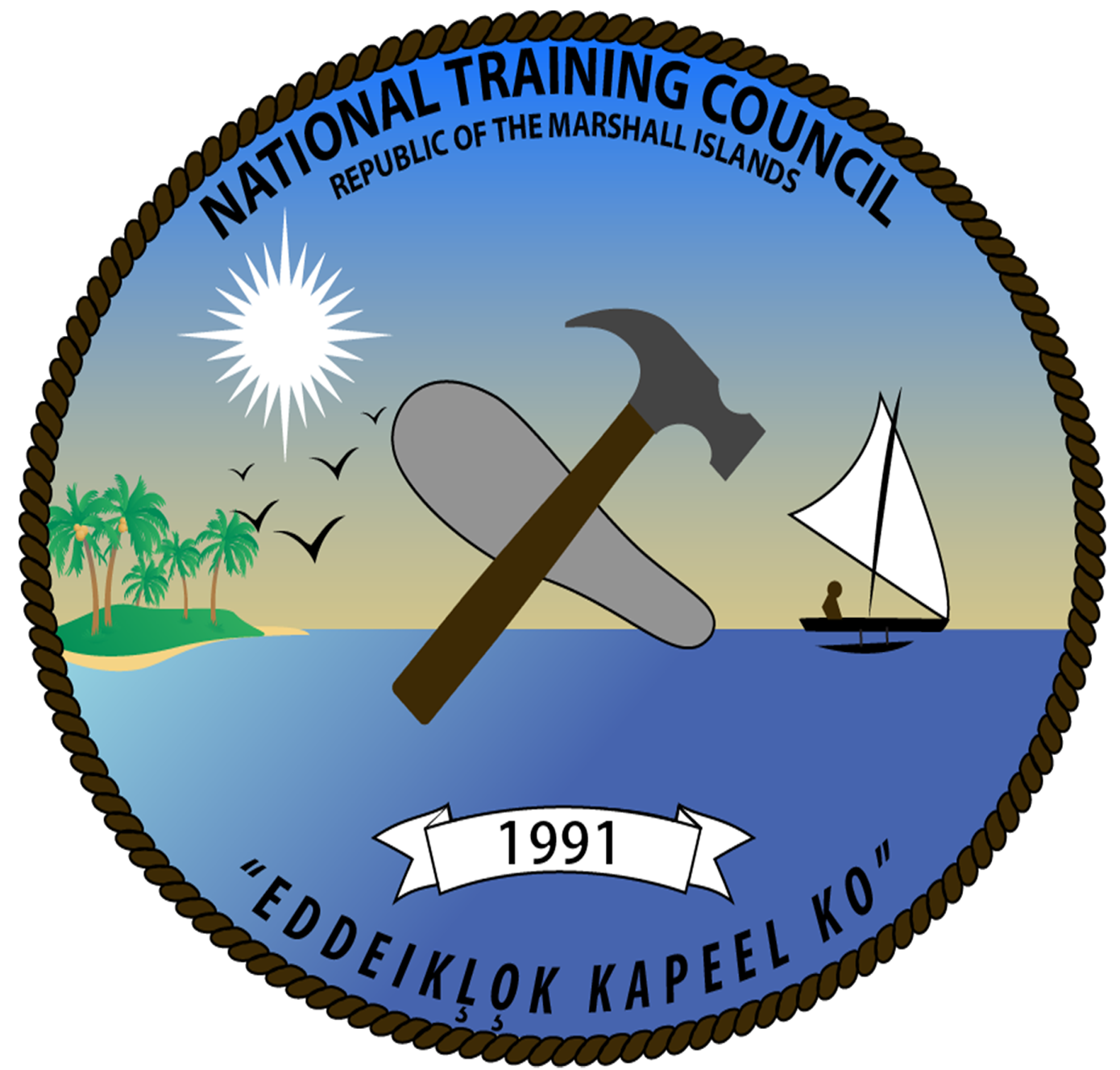Mandate, Mission and Operating Principles
MANDATE
Industrial Development Act
The Republic of the Marshall Islands National Training Council (NTC) was established in 1991 under the amended Industries Development Act (P.L. 1991-140) to serve as “the lead agency in coordinating, regulating, and promulgating policy on vocational and job training programs in the RMI”. This legislation has been amended three times, in 2000 (P.L. 2000-21), in 2005 (P.L. 2005-39), and in 2015 (P.L. 2015- 47). The 2015 amendment updated and reinterpreted the Council’s mandate to include functions one through eleven as listed below. Function 12 will be added under the Rights of Persons with Disabilities (Consequential Amendments) Bill 2018.
- Advising the RMI Minister of Education on all matters relating to vocational and job training;
- Making grants to organizations to provide training to RMI residents with special emphasis on target groups designated “high priority” by the Council;
- Conducting surveys of employers to identify training needs and skills gaps;
- Taking the lead role in implementing the TVET Strategic Plan and in other initiatives delegated to NTC by the Nitijela or Cabinet;
- Establishing occupational training standards and overseeing the testing of trainees;
- Establishing a national trades certification and credentialing system;
- Implementing a national apprenticeship system;
- Establishing a center to provide employment-related counseling and job placement services to Marshall Islands residents;
- Strengthening the skills of trainers in the non-formal sector;
- Monitoring the collection and use of fees under the Non-Resident Workers Act;
- Screening and referring applications to the Hawaii Job Corps Center;
- Providing for vocational training, trade certification, counseling, apprenticeships and job placements for persons with disabilities.
RMI Agenda 2020
In addition to the Council’s legislative functions, NTC is required to implement specific tasks as set out in the RMI Agenda 2020, including:
- Strengthening skills development programs with more direct links to businesses and employers and strengthening training programs in basic entrepreneurship, business and financial
- Piloting a youth service/conservation corps to provide training, community service and employment opportunities for youth.
- Exploring the feasibility of new programs such as: in-residence vocational programs similar to the Pohnpei Agriculture & Trade School, Kibbutz and conservation programs, and training youth on using coconut wood products.
- Strengthening linkages with employers and training-to-work transitions, including on-the- job-engagements.
- Establishing a technical training program with stronger links to Kwajalein base operations.
Youth Employment National Action Plan
As stated in the Memorandum of Understanding (MOU) signed between the RMI Government and the International Labor Organization (ILO) in November 2017, the NTC assumed lead responsibility for three of the seven outcomes identified in the Youth1 Employment National Action Plan (YENAP). This includes:
- Outcome #3: Increased human resource capacities complemented by a higher retention rate of local talent;
- Outcome #6: Job opportunities are more accessible to youth, and
- Outcome #7: Young people have better access to Business Development Service providers and minimize the risk associated with starting an enterprise.
The specific outputs under these outcome areas are included in the YENAP and the NTC Action Framework (Section VI). NTC is also required to assist the lead agencies responsible for undertaking work in the four other outcome areas.
MISSION
To equip residents of the Marshall Islands with the skills and attributes needed for gainful employment and to contribute to a more vibrant economy that is less dependent on foreign workers.
OPERATING PRINCIPLES
NTC is visible and accessible
NTC is knowledgeable and innovative
NTC is collaborative, engaging and enthusiastic
NTC is adaptive and responsive to changing circumstances NTC is transparent and accountable
NTC is equitable and fair

